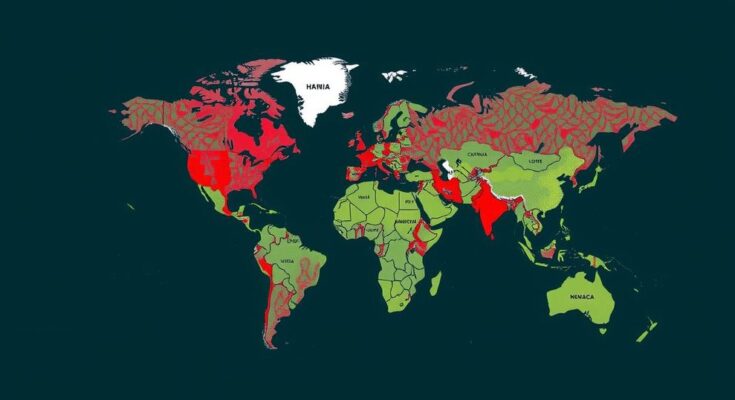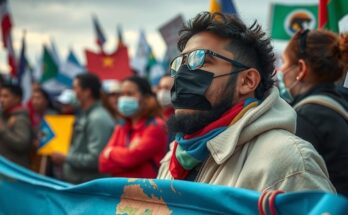The COP29 climate summit in Baku reveals ongoing tensions over establishing a New Collective Quantified Goal for climate finance. Developed nations propose raising climate finance to $300 billion, while developing countries demand a minimum of $1 trillion annually by 2030. The disparity is stark, especially for vulnerable nations like Pakistan, which faces a projected $348 billion finance deficit by 2030. The negotiations underscore the critical need for developed countries to acknowledge their historic responsibility and provide adequate support to mitigate the climate crisis.
The COP29 climate summit in Baku has extended beyond its initial deadline, with ongoing negotiations that indicate a potential impasse. A significant point of contention revolves around establishing a New Collective Quantified Goal for climate finance. Despite the expectation for developed countries to commit to a stringent financial framework due to their historical responsibility for greenhouse gas emissions, their proposals have fallen short. Notably, while wealthy nations have suggested raising climate finance to $300 billion, developing countries are seeking a substantially larger contribution, as current estimates indicate a minimum requirement of $1 trillion annually by 2030 to fulfill the objectives of the Paris Agreement.
The disparity is particularly stark considering Pakistan faces a climate finance deficit projected at $348 billion by the year 2030. As discussions continue, the stark disconnect between the climate realities faced by developing countries and the commitments made by wealthier nations is evident. The frustrations of nations such as Sierra Leone, which have considered withdrawing from the negotiations, reflect a growing discontent regarding the perceived inadequacy of funding.
The deliberations further explored not just the amount of financing required but also the responsibility of payment. European nations have pushed for contributions from high-emitting economies like China and Gulf states. Yet, it is crucial to acknowledge the historical emissions of the Global North, which cannot evade accountability. Adding complexity to the negotiations, the recent election of Donald Trump, who has dismissed climate change as a fabrication, has cast uncertainty over the U.S. commitment to the climate finance goals during his administration.
Pakistan’s delegation, under the leadership of negotiator Arif Goheer, has articulated disappointment with the draft agreement, emphasizing that the country has demonstrated commitment to global climate objectives through various diplomatic initiatives. Prime Minister Shehbaz Sharif has reiterated the need for grants rather than loans to avoid exacerbating debt issues. Domestically, Pakistan has initiated measures to tackle climate vulnerabilities, including the formulation of the National Climate Finance Strategy and the Recharge Pakistan initiative aimed at managing flood risks with ecosystem-based solutions. Nevertheless, these ambitious frameworks necessitate significant financial support.
As discussions progress, the challenge of accessing any allocated funds, hindered by bureaucratic processes, looms large. The international community must grasp that climate finance extends beyond numerical values; it embodies the imperative of enabling vulnerable nations to endure and adapt to a crisis they had minimal contribution towards creating. Presently, the gap between aspiration and realization persists, leaving essential goals unachieved.
Climate finance is a critical facet of international climate negotiations, particularly relevant at summits such as COP29. It addresses the financial commitments that wealthier, developed nations must allocate to assist developing countries, which are disproportionately affected by climate change despite being less responsible for its causes. The emphasis is placed on mobilizing resources to facilitate mitigation and adaptation efforts in vulnerable nations. Current discussions highlight the challenges in reaching a consensus on specific funding targets and mechanisms, especially as the urgency for actionable climate solutions intensifies in light of global warming impacts.
In summary, the negotiations at COP29 reveal profound challenges in establishing an effective climate finance framework, with significant discrepancies between the expectations of developing nations and the offers from developed countries. The reality of climate financing is not merely a financial obligation but a moral imperative to support those affected by climate change, reinforcing the urgency for a unified, equitable approach to global climate solutions.
Original Source: asianews.network




